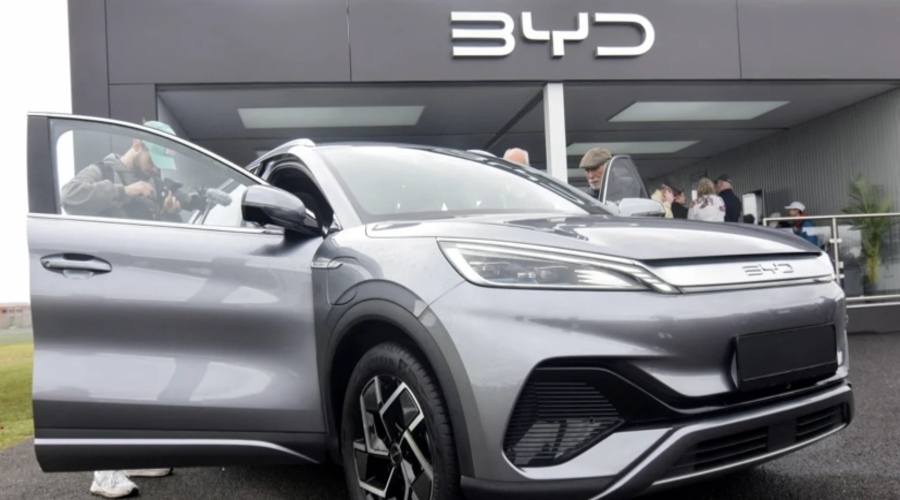Currently, Mexico finds itself in the middle of a dispute that could redefine its role in the global automotive industry. With the surge of Chinese electric vehicles into its territory, the United States is watching closely, fearing these brands may use the country as a springboard into the US market.
However, Mexico views these investments as an opportunity to solidify its position in the electromobility sector. Will it succeed?
Manuel Montoya Ortega, director of the Automotive Cluster of Nuevo León, describes the situation as a true test: “Chinese manufacturers would need to come and manufacture in North America to be on equal terms. The reality is that Chinese cars arrive in Mexico at very attractive prices, but they don’t always play by the rules, as many are subsidized by their governments.”
Montoya Ortega’s stance leaves no room for doubt: if Chinese brands want a place in North America, they must invest in the region and follow the same rules as everyone else.
“All we ask is that if they are in Mexico, they also invest in Mexico, as other brands have done,” he stated at the International Mobility Portal Summit, “Electric Vehicles: New Opportunities for Strategic Markets: Latin America and the Caribbean.”
Around 20 Chinese manufacturers currently sell cars in Mexico, but none of them yet have a plant in the country.
Perhaps this will soon change, as brands like BYD, Chery Group, and Great Wall Motors are already on Mexican soil, determining locations for their factories.
Meanwhile, JAC will expand its production plant in Hidalgo to operate seven assembly lines, preparing to meet demand with the presence of electric cars and trucks.
The déjà vu of Japanese brands
The arrival of Chinese brands in Mexico inevitably recalls the situation decades ago when Japanese brands entered the United States.
In this regard, the director of the Automotive Cluster of Nuevo León draws a parallel: “I compare it a lot to what happened in the 70s and early 80s with Japanese brands, which were very underestimated in the United States. However, the Japanese came to revolutionize the American automotive industry.”
Today, the story seems to be repeating itself, but with different players. The Chinese, like the Japanese once did, are making great strides in electric mobility, and Montoya Ortega insists that competition must be fair.
While acknowledging their technological advancements, he warns that Mexico cannot allow practices that destabilize the local market.
Key decisions in Mexico
As the United States prepares for elections that could reshape its trade policies, the Latin American country also faces crucial decisions.
It’s worth noting that the tariff benefit for electric vehicles imported from China is coming to an end. As of 1 October 2024, light electric vehicles imported from countries with which Mexico does not have a free trade agreement, including China, will lose the 15% to 20% tariff exemption that was granted in September 2020.
The original decree, valid until the end of President Andrés Manuel López Obrador’s administration, aimed to reduce import costs to encourage the purchase of electric vehicles and promote more sustainable mobility.
This policy resulted in a significant drop in the price of electric cars, with some models available for under 400,000 pesos.
Eugenio Grandio, president of the Electro Mobility Association (EMA), underscores the importance of remaining competitive: “Our mission is to reach 100% electric cars by 2035 and 50% by 2030. The best way to do this is with the best technology at the best price, allowing free competition where the customer chooses the best option.”
Here, the executive highlights how Chinese vehicles have taken advantage of tariff exemptions to enter the Mexican market, offering prices that other countries could not match.
“It’s necessary to balance trade issues, free trade, treaties, national production, and the adoption of technologies in our cities,” he remarks, understanding that electromobility must be a priority, both in Mexico and globally.
For Grandio, the elimination of tariffs should be accompanied by policies that promote local production and protect consumers. He suggests, “If tariffs are removed, electric vehicles should still be allowed to enter at good prices.”
Thus, he proposes setting mandatory quotas for electric vehicles, or that brands benefiting from tariff exemptions take the lead in electromobility.
Chinese brands, a challenge for automakers
Dante Martinez, Director of Marketing and Public Relations at Volvo Cars Mexico, points out that the arrival of Chinese vehicles presents a direct challenge for automakers already established in the country.
“Chinese brands are entering with a very strong value proposition, but Mexican companies need to focus on strengthening their value chain, especially in the intangible part that the customer doesn’t see, like service,” he reflects.
Martinez emphasizes that although Chinese vehicles are attractive because of their price, Mexican companies must focus on retaining their customers through quality service.
“Service is where the second car is always sold,” he reveals, implying that local automakers can use their knowledge of the market to compete effectively.
Relive the International Mobility Portal Summit “Electric vehicles: New Opportunities for Strategic Markets: Latin America and the Caribbean.”






